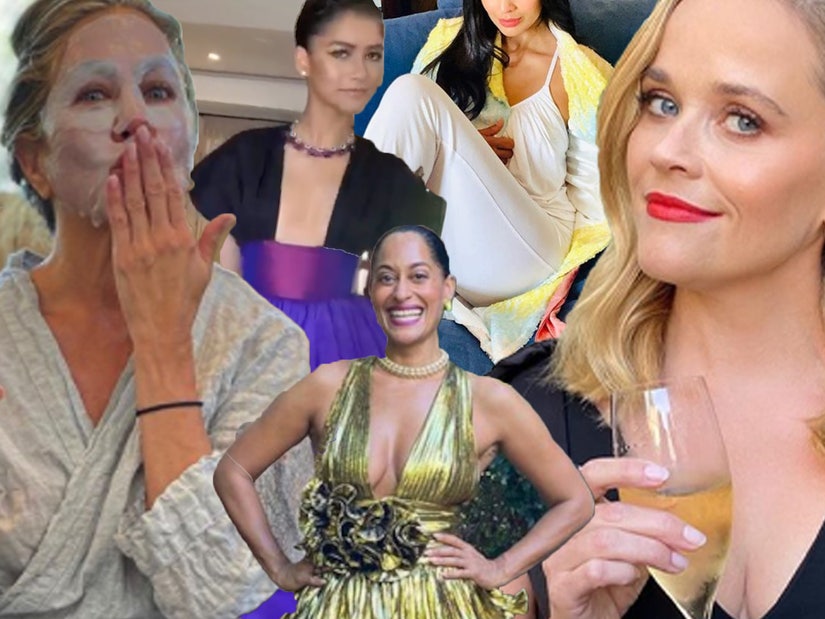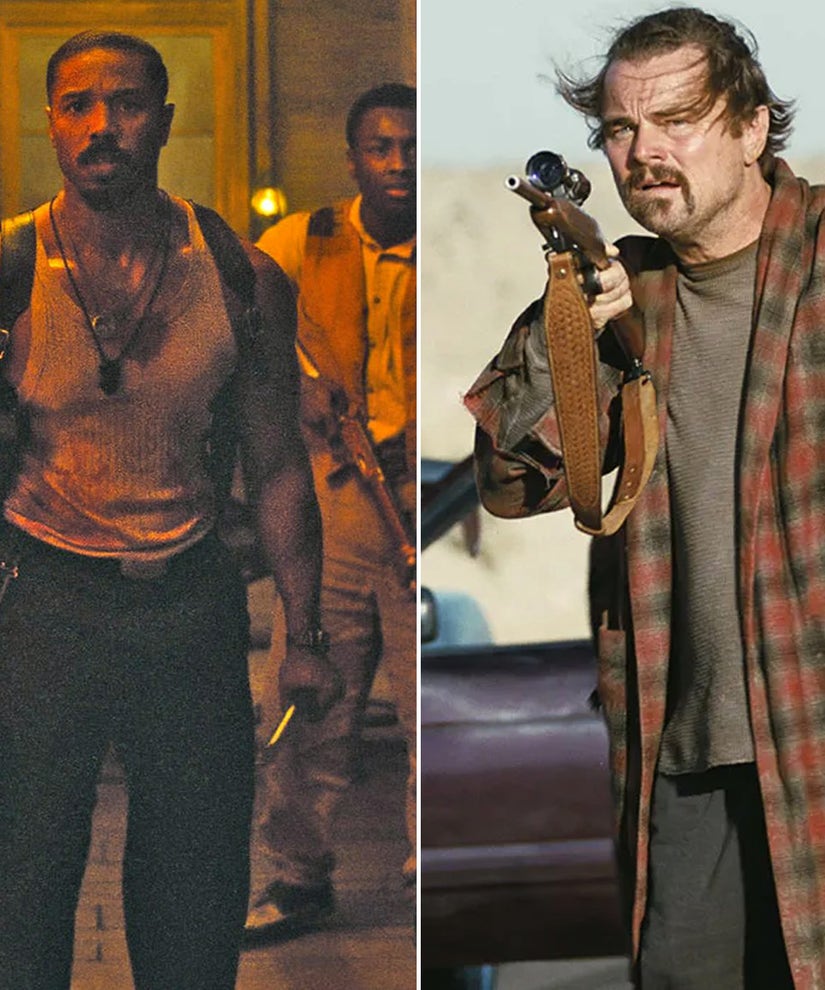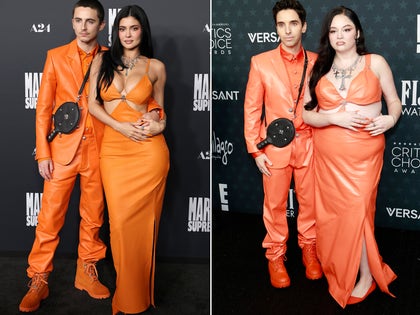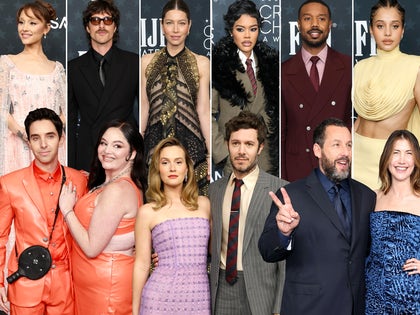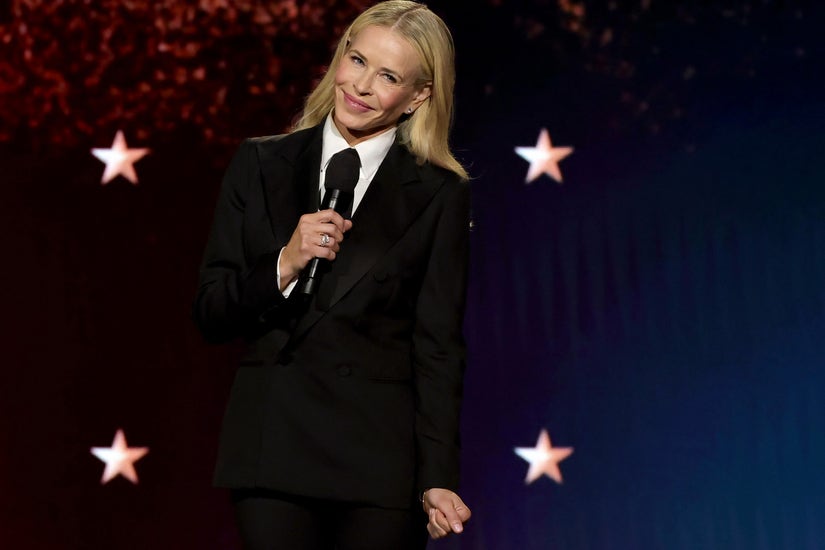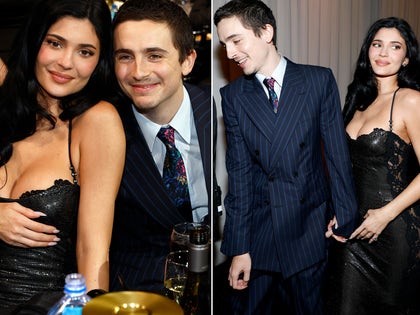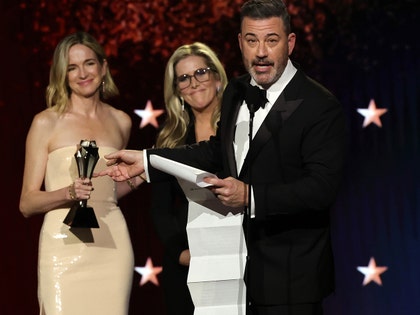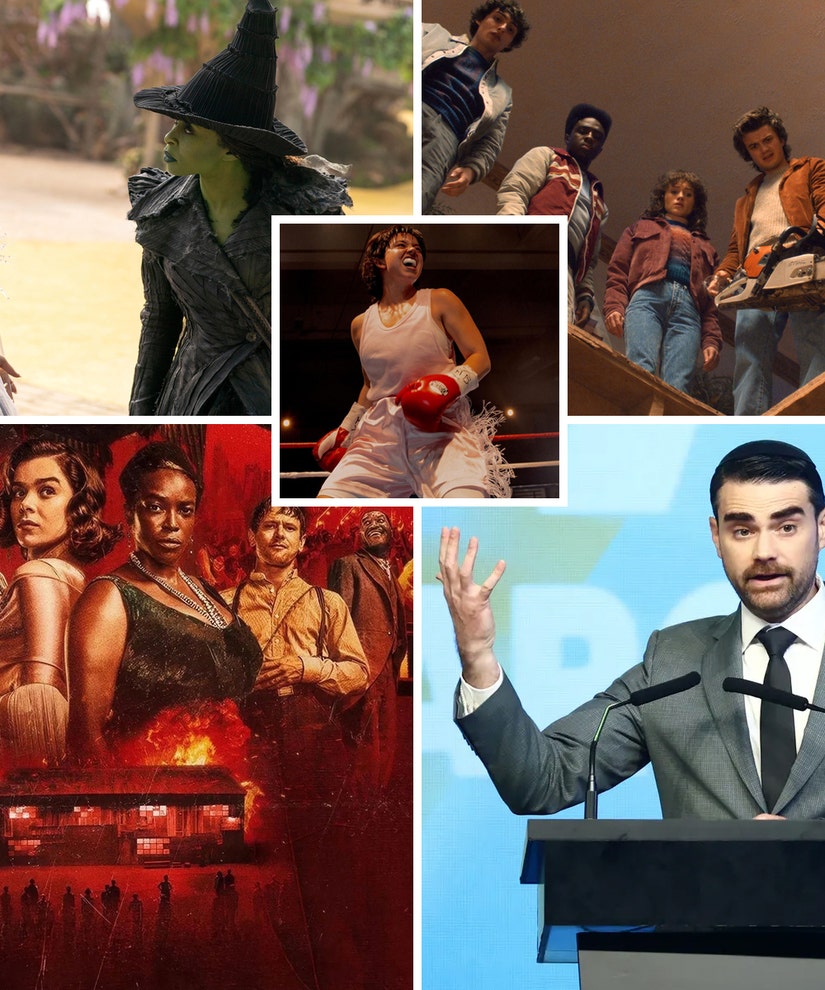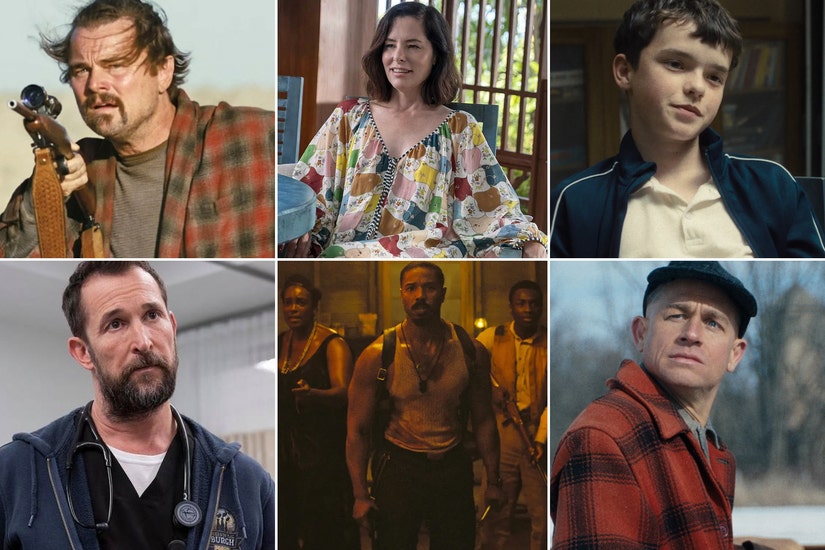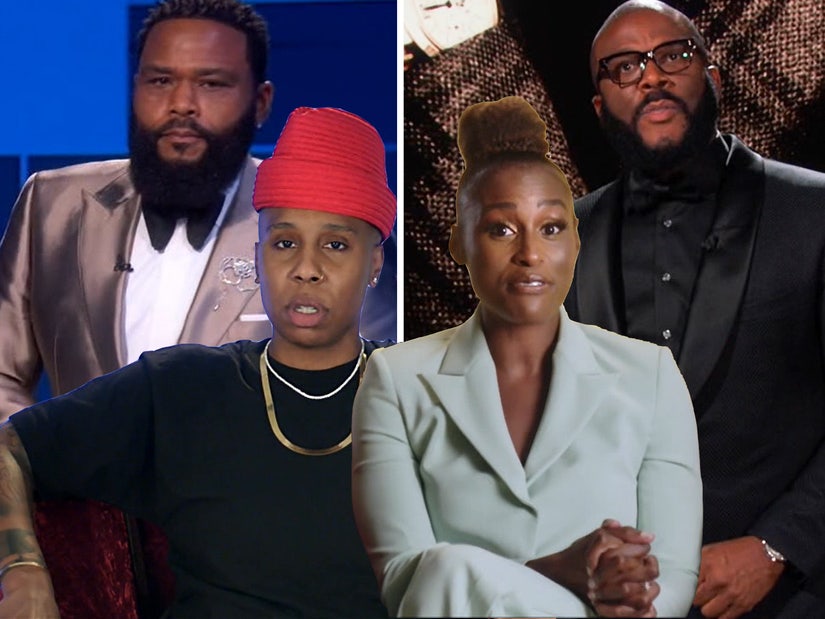 ABC
ABC
Rae, Waithe, Perry and America Ferrera spoke about creating the representation lacking on their screens while Anthony Anderson celebrated what "was supposed to be the Blackest Emmys ever."
The Emmys was an unprecedented affair for reasons beyond all of the changes brought about by the COVID-19 pandemic. It was also the year of the greatest representation for Black people among nominees in the history of the Academy.
And so, while it couldn't be celebrated with everyone in the same room, the broadcast did its part to make sure BIPOC voices were elevated and heard throughout the evening.
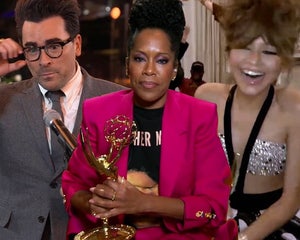 ABC
ABC
2020 Emmy Awards: Complete Winners List
View StoryNot only were there those impromptu moments from winners like Regina King urging people to get out and vote, but BIPOC voices were given prominent placement all night long, whether in pre-taped packages, as presenters, or as the recipient of the Governors Award.
It's one thing to allow the evening to progress organically and have BIPOC speak when they win an Emmy, but the academy intentionally carved out time for Issa Rae, Lena Waithe and America Ferrera to speak their truths about the challenges they faced coming into a Hollywood not yet ready for their vision.
These were moments of honesty and truth about how poorly Hollywood has treated non-white people, pushing stereotypes on them, pushing them to be supporting players in white stories, and when it is finally time to tell their story, white executives are resistant to back it and they find themselves still surrounded by white voices and influence in their ear about how their story should be told.
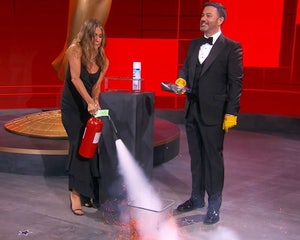 ABC
ABC
Watch Jennifer Aniston Put Out Literal Fires at The Emmy Awards
View StoryAs for Anthony Anderson, he just took his moment with a live appearance touting what should have been. "We have a record number of Emmy nominees this year, which is great," Anderson said, referring to the 36 Black acting nominees.'
"These Emmys would have been NBA All-Star weekend and Wakanda all wrapped in one," he joked, later adding, "These Emmys would have been so Black it would have been like hot sauce in our purse Black. It would have been Howard University homecoming Black. It would have been ‘You fit the description’ Black."
Hilariously -- though not surprisingly, considering they had to visually put the name of the show "Schitts Creek" on the screen every time someone said it in case someone got the wrong idea -- Anderson got censored when he started saying the name of Cardi B's new song, "WAP." It's not like he was breaking down the acronym!
Finally, Anderson said that he is rooting for "everybody Black because Black stories, Black performances and Black lives matter." He then got Jimmy Kimmel to repeat that phrase multiple times louder and louder.
"Say it so that Mike Pence can heart it!" Anderson told him, one of several pointed political moments throughout the show, including some from Kimmel himself who joked during his monologue that of course there was no audience (he faked it for several minutes), after all, this isn't a MAGA rally.
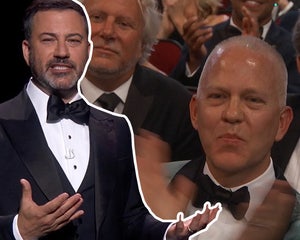 ABC
ABC
Jimmy Kimmel Trolls Everyone With Fake Emmy Audience
View StoryIn one of the show's pre-taped segments, Ferrera shared the story of her very first audition when she was 16 years old, an all-American teenager who also happened to be a "brown girl," as she put it.
"I walked in, did my audition, the casting director looked at me and she was like, ‘That’s great. Can you do that again, but this time sound more Latina,'" Ferrera shared.
"Um, so, like, do you want me to do this in Spanish?" she countered, only to be told. "No, no, do it in English. But just, you know, sound more Latina." Her only response, "I am a Latina and this is what I sound like.’ And she just looked at me and was like, ‘Okay, sweetie, thank you. Bye.’"
Ferrera said when she told her family, a little older and a little wiser about how things work when you are a minority in this country, they immediately told her, "They wanted you to speak in broken English, they wanted you to sound like a Chola. What did you think was gonna happen? They were going to have you staring in the next role meant for Julia Roberts?"
And yet, that's exactly what she thought, Ferrera said. "That realization for me has fueled me to create more opportunity for little brown girls to fulfill their talent and fulfill their dream."
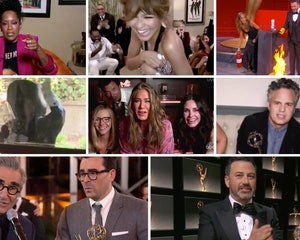 ABC
ABC
2020 Emmy Awards: The Most Viral Moments of the Night
View StoryIt was that same drive that pushed Issa Rae to keep fighting and forging ahead with her vision for what would eventually become "Insecure." She walked into this world of Hollywood as a Black woman, and they immediately didn't know what to do with her.
Or perhaps more specifically, they thought they knew exactly what to do with her. Rae said that she came in to her first pitch meeting off the strength of her web series only find that the executive clearly hadn't seen it -- so she came in off of someone else recommending her.
"He was like, 'Yeah, it's about this Black woman and her Black-woman problems. Hilarious,'" Rae said. "And I was like, 'That's not what it's about. But okay.'"
Rae said the executive then proceeded to start telling her what Black audiences wanted to see, suggesting she "might need to switch up the characters" among other suggestions.
"Mind you, he's this executive who's not Black telling me what Black people like," she said. "And it just became very clear to me that he didn't get the show. And I remember just fuming in that meeting like, 'Why does he get to tell me what gets to be on TV? Why does he get to tell me what people like me like to see? I'm here! I'm telling you what I want to see. I made it.'"
And that's the moment Rae realized that she couldn't rely on the old ways and the old system to push her vision forward because they had their own vision for what a Black woman should be doing or saying.
"That moment was the motivation I needed to keep doing what I was doing," she said. "To kind of bet on myself. And that fueled me. Like, 'Oh, okay. I'll show you.' And, you know, one of us got fired after that." Guess who it wasn't?
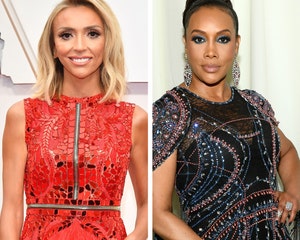 Getty
Getty
Emmy Red Carpet Hosts Giuliana Rancic, Vivica A. Fox Both Test Positive for COVID-19
View StoryFor Lena Waithe it was so much about being seen, a moment that didn't happen for her until she was watching the "Cosby Show" spinoff "A Different World." It came when a young Jada Pinkett said her character's name.
"She said, ‘My Name is Lena James.’ And of course I’m watching it with my family and they of course all gasp at the same time, and it was such a moment," Waithe said. "I really felt like the universe was speaking to me, saying, ‘Yes, you, I’m talking to you, Lena.’ So I just really felt seen in a way that I hadn’t ever felt seen before."
It was because of how impactful that moment was for her, as a queer Black woman, that Waithe has made an effort throughout her career to make sure that as many different people as there are can also feel seen on their television screens.
"I still think there’s a lot more territory to cover in terms of intersectionality with blackness and queerness and we need to continue to tell stories that don’t necessarily look like our lives," she said. "‘Cause that’s the only way I think we’re going to grow as a society."
She also argued that BIPOC and LGBTQ voices have the right to tell their stories as they choose. "I think that even if I did something wrong or somebody doesn’t like the way I do something, I reserve the right to do it my way," she said. "We’ve at least earned the right to tell our stories the way we see fit."
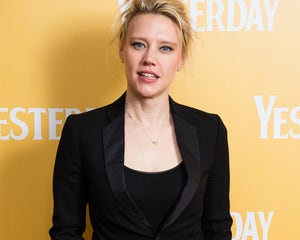 Getty
Getty
Kate McKinnon Pays Tribute to 'Real-Life Superhero' Ruth Bader Ginsburg
View StoryTyler Perry was so committed to telling his own stories his own way that he built a media empire along the way, created a whole new model for studio production and even his own model for how to make and sell a television show.
The winner of this year's Governors Award was introduced by luminaries no less than Chris Rock and Oprah Winfrey who shared his staggering story of rising up from sleeping in his car to a billion-dollar film and television empire.
He painted a beautiful story about his own prejudices and dismissal of stories that he didn't understand, much like what Rae and Waithe experienced, by telling of a quilt his grandmother had made and given to him.
It was only years later, after he'd dismissed and abused and ultimately lost this quilt, that he heard the story of a similar quilt and how it told this woman's live story, from emancipation to wedding and every other moment in her life that meant something to her.
"Here I was a person who prides myself on celebrating our heritage, our culture and I didn’t even recognize the value in my grandmother’s quilt," he admitted. "I dismissed her work and her story because it didn’t look like what I thought it should."
He then talked about his humble upbringing and how that experience, being a Black man in this world at that time, shaped her own quilt and her own story and her own ability to step outside of it and believe.
He argued that in his mother's story, or quilt, she could never imagine the life he now leads, the things he's accomplished.
"She couldn’t imagine me owning land that was once a Confederate army base where Confederate soldiers plotted and planned how to keep Blacks enslaved," he said of his massive studio complex in Atlanta.
"Now, on that very land, Black people, white people, gay, straight, lesbian, transgender, ex-cons, Latin, Asian, all of us come together working. All coming together to add patches to a quilt that is as diverse as it can be, diversity at it’s best."
Got a story or tip for us? Email TooFab editors at tips@toofab.com.

